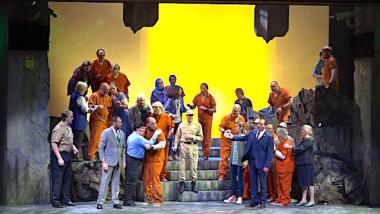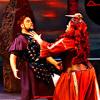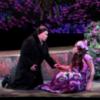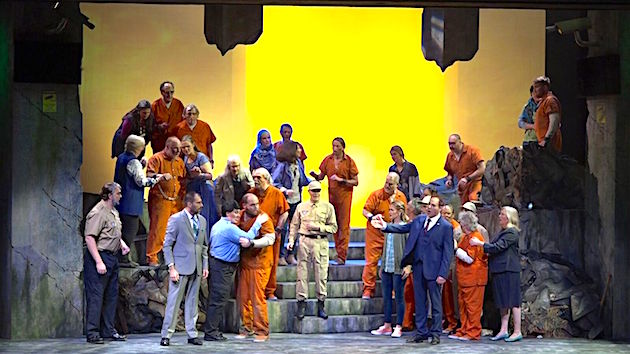
Opera at its best is more than a show — it involves, moves, enthralls. And so it was at West Bay Opera’s Sunday matinee of Beethoven’s Fidelio as the majestic finale’s delirious celebration of freedom and the triumph over evil moved to tears (wiped surreptitiously during the standing ovation).
Fidelio is a difficult masterpiece, challenging even major opera companies. How extraordinary it is to witness an exceptional, affecting production from a small regional company. Sure, West Bay Opera has had decades of surprises, going beyond expectation time after time on Lucie Stern Theater’s tiny stage, orchestral excellence rising from a miniature pit, but this performance was incomparable.
Under Music Director José Luis Moscovich’s baton, the orchestra — split between the pit and the wings of the stage — played with dedication and high spirits. Soloists shone, the chorus of a dozen male prisoners — later doubled in size when women joined in for the finale — channeled the sound of big symphonic choirs.
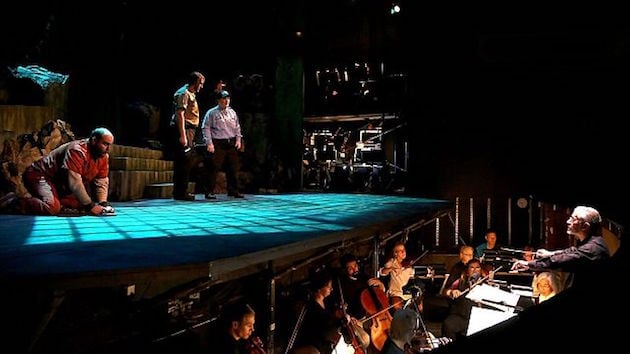
Peter Crompton’s complex sets were architectural marvels. Stage director Ragnar Conde’s concept of bringing the work into a present-day U.S. prison (but retaining the German text) might have been asking for trouble, especially if it was overdone. Some clever bits in the Supertitles and a few Facebook projections came close to that danger point, but respect for the work and the relentless focus on realizing Beethoven’s intention and art saved the day. (On Sunday, the day before the U.S. holiday, there was an audience-tickling bit that changed “the Spanish king’s name day” to President’s Day.)
As Moscovich wrote about Fidelio, “it is music that reaches the heart,” an observation well demonstrated by the WBO performance. “The score is different and unconventional, to be sure,” Moscovich continued, “but it is also extremely effective ... with great symphonic music, great vocal ensembles, as well as magnificent arias.”
In the title role, Meredith Mecum made an important West Bay debut, the clarion call of her powerful voice never diminished in one of opera’s most demanding roles. Her big aria, “Abscheulicher!” (Abominable monster), shook the rafters and moved the audience.
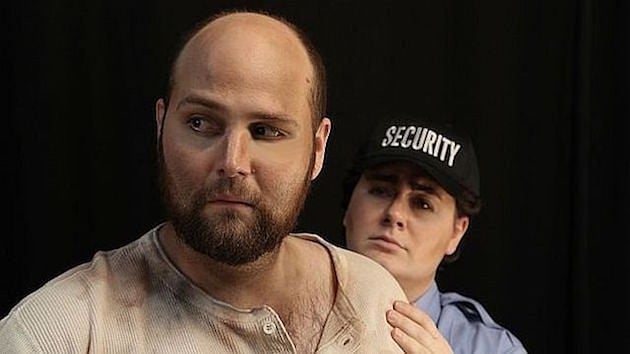
The counterpart to the soprano’s big moment is Florestan’s heroic aria, opening Act II: “Gott! Welch Dunkel hier!” (God! How dark it here), and Brent Turner tossed it off as if it wasn’t a killer of tenors. Both Mecum and Turner sang “big,” but without showing any effort. Their triumphant love duet in the finale — “O namenlose Freude!” (Joy without name) — was exhilarating.
Ben Brady’s sonorous Rocco (and fine stage presence), Kate Fruchterman’s appealing Marzelline, Carmello Tringali’s lovestruck Jaquino, Jackson Beaman’s First Prisoner, and Stephen Boisvert’s Second Prisoner were excellent individually and their ensemble blend was exemplary.
As symbols of evil and good, Krassen Karagiozov’s prison warden Pizarro and Kiril Havezov’s Fernando were both splendid, vocally and theatrically. Moscovich and Conde took some minor liberties with those characters: when Pizarro is unmasked, he runs away — a simple, but effective staging idea. Fernando, a minister in the original, here becomes the Attorney General, prompting some of the audience to consider if Jefferson Sessions would bring “the day and hour of justice” to the story.
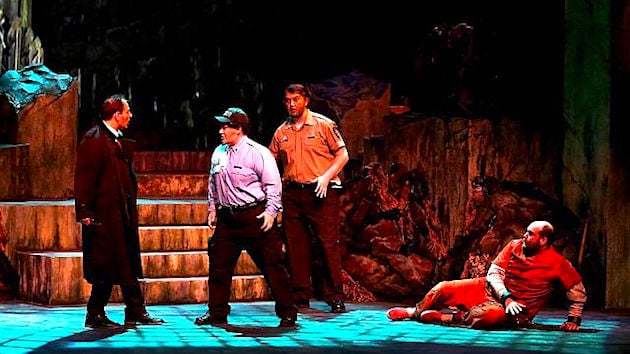
Disregarding financial and space limitations, Moscovich assembled and led an orchestra that performed wonderfully well. From concertmaster Kristina Anderson and Evan Kahn’s cello to Peter Lemberg’s oboe, Art Austin’s clarinet, Carolyn Lockhart and Susan Dias’ bassoons, strings and woodwinds sang with broad power and affecting beauty. At the beginning, the brass had a few problems, but when it came to the trumpet’s starring role, Rick Leder’s instrument provided the pure, thrilling sound of liberation and triumph.
West Bay Opera’s run of Fidelio continues through Feb. 25. Details and tickets at their website.

